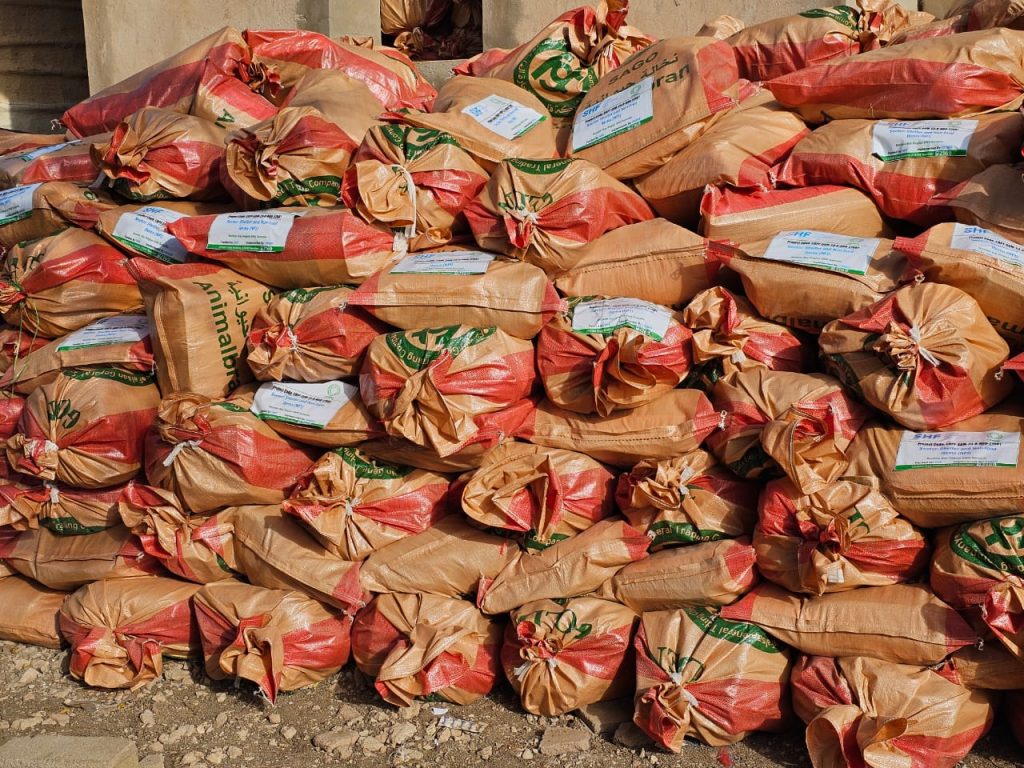CESDO Shelter & NFI Program
CESDO Programs
CESDO Programs
Shelter & Non-Food Items
At CESDO (Community Empowerment and Social Development Organization), we are committed to providing life-saving shelter and essential non-food items (NFIs) to vulnerable communities in Somalia. Our Shelter & NFIs program is designed to meet the critical needs of displaced populations, especially those affected by conflict, natural disasters, and other crises, ensuring they have access to safe shelter and basic necessities during emergencies.
Working in collaboration with local partners, government authorities, and humanitarian agencies, CESDO delivers timely and effective assistance that helps affected families regain their dignity and restore a sense of normalcy. We focus not only on immediate relief but also on promoting long-term solutions that enhance community resilience and recovery.
Key Highlights of our Shelter & NFIs Program:
Emergency Shelter Assistance:
When crises lead to displacement, access to safe and secure shelter becomes a top priority. CESDO provides emergency shelter kits that include essential materials such as tarpaulins, ropes, and basic tools for constructing temporary shelters. We also offer technical guidance and support to help displaced families build and reinforce their shelters, ensuring they are protected from the elements and can rebuild their lives with dignity.
Transitional Shelter Solutions:
In addition to emergency shelter, CESDO works to provide transitional shelter solutions for displaced communities. These shelters are designed to offer a more stable living environment while still being flexible enough to adapt to changing circumstances. By focusing on durable materials and community-driven construction processes, we ensure that families have safe spaces to live in while more permanent housing solutions are explored.
Distribution of Non-Food Items (NFIs):
Beyond shelter, CESDO’s NFI assistance plays a crucial role in meeting the basic needs of displaced and vulnerable populations. Our NFI distributions include essential household items such as blankets, cooking sets, jerry cans, solar lamps, and hygiene supplies. These items are carefully selected to ensure that families have the tools they need to maintain basic living standards, stay healthy, and protect themselves from the harsh environment.
Community-Based Shelter Solutions:
CESDO is committed to empowering local communities to take ownership of their recovery. Through community-led shelter reconstruction initiatives, we engage affected populations in rebuilding efforts, fostering resilience and ensuring that the solutions are appropriate for their specific needs. By involving community members in the design and construction of shelters, we promote sustainability and help create a sense of pride and belonging.
Shelter Risk Reduction and Capacity Building:
To mitigate the risks associated with future disasters, CESDO integrates disaster risk reduction measures into its shelter programs. We conduct trainings and workshops to raise awareness of safe construction practices, hazard identification, and community-based disaster preparedness. By building local capacity, we aim to reduce vulnerability and strengthen the resilience of communities in SWS, Somalia.
Our Impact:
CESDO’s Shelter & NFIs program has positively impacted thousands of displaced individuals and families in SWS, Somalia, offering them safety, security, and hope in times of crisis. By addressing the urgent need for shelter and essential items, we are not only saving lives but also contributing to the long-term recovery and well-being of the communities we serve.
At CESDO, we remain steadfast in our commitment to ensuring that no one is left behind in the face of emergencies. Our Shelter & NFIs program is a cornerstone of our humanitarian efforts, reflecting our dedication to protecting the dignity of vulnerable populations and supporting their path to recovery and resilience.
Join us in our mission to provide life-saving shelter and essential aid to those in need. Together, we can make a difference in the lives of the most vulnerable in South West State, Somalia.

